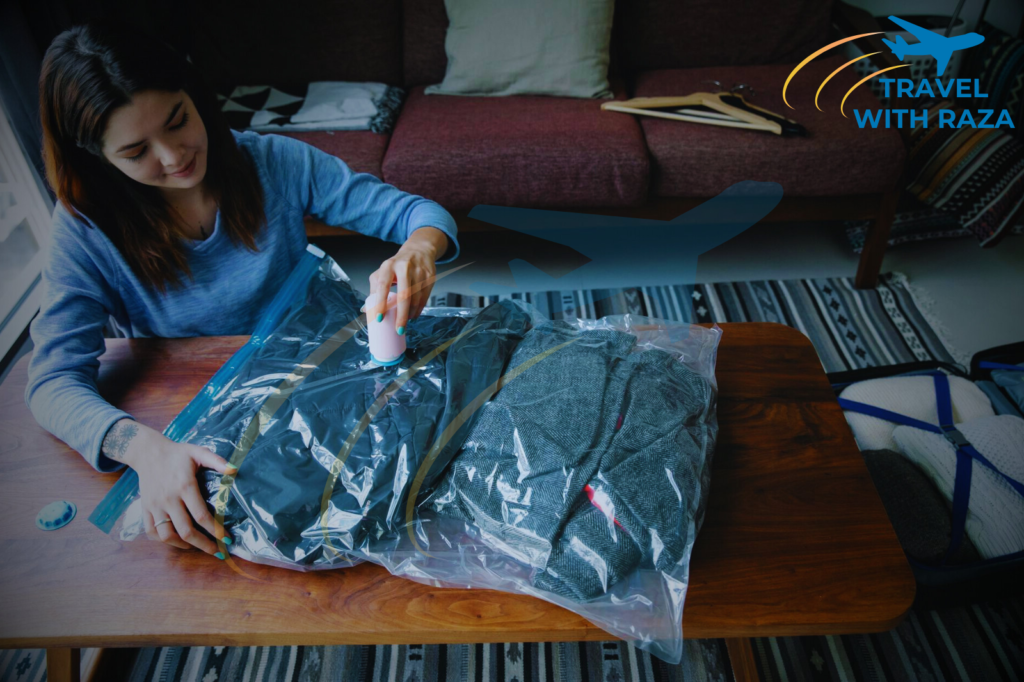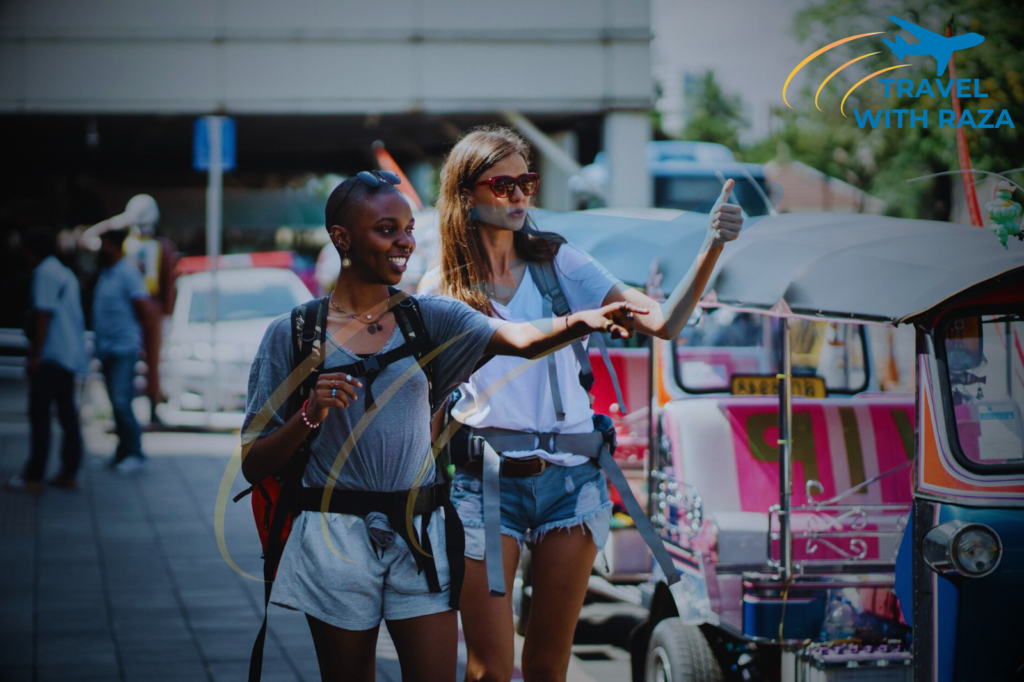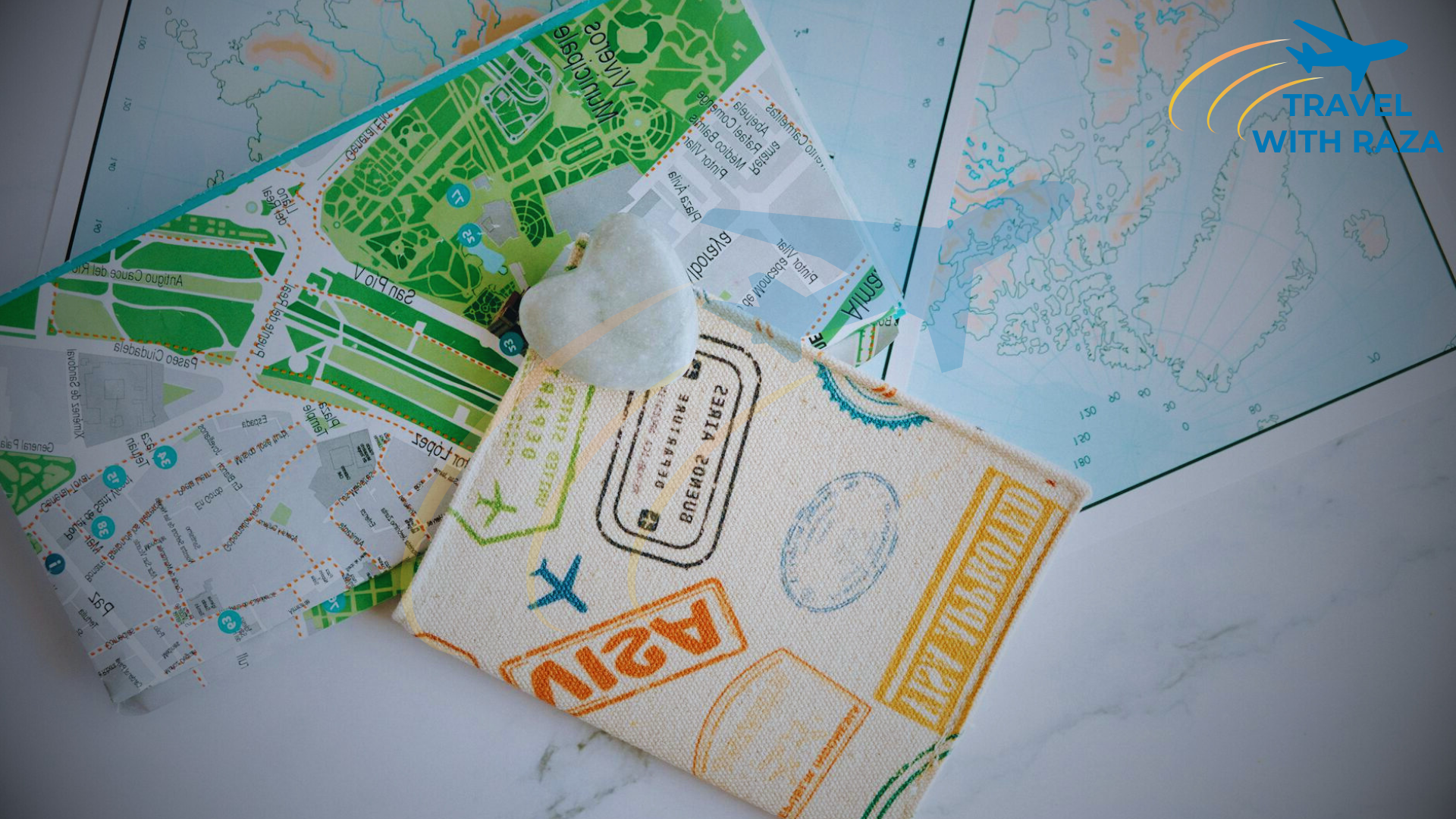Have you ever considered going on an adventure to some destination without a plan? Picture waking up in a new city, no plan, no reservation, no timeline, just possibilities! That’s the thrill of unplanned travel, where spontaneity reigns, and every new day features another surprise.
For those not used to casually living, the unplanned suggestion is doubly insulting them. How do I save money if I do not plan? What if I cannot afford a hotel or am stranded without enough money to leave? While these questions certainly have validity for the unsure never planned travelers – With the right mindset and a few tactics for ‘playing the system,’ the suggestion of traveling without a plan could be just as economical as long-term planning; last minute bookings, food to fit your budget, and experiences built around you as an independent traveler. In this study you will learn how to set out on traveling without a plan, and care for your pocketbook simultaneously.
Whether you can embolden yourself enough to give up some egregious comforts, and put your mind in a space of travel pleasure is a question…Let’s discuss what to keep in mind for your next travel rung without a plan. You will learn how to pack light, plan for anything, keep your eyes open and find ways to care for your pocketbook too! Get ready to mix up your travel style, and include spontaneous travel.
Embrace Spontaneity: The Joy of Unplanned Travel
Freedom to explore off-the-beaten-path destinations
Traveling spontaneously creates possibilities to explore hidden gems and discover unique experiences that a guidebook could not even touch upon. When you travel without strict deadlines, there is time to wonder down a narrow alleyway or find a local festival or inquire with other travelers for the latest find at a secluded beach. These unintended moments are often the most precious snapshots of travel.
Flexibility to change plans based on local recommendations
One of the best aspects of spontaneous travel is having the option to change the direction of travel based on a local person, or other travelers, who have tipped you off to the best beach or a concert tonight. Locals or fellow travelers provide valuable information to plan your traveling day to best experience the local culture while wasting less time and avoiding common tourist spots.
Opportunities for unexpected adventures and discoveries
Embracing spontaneity in your travels can mean saying ‘yes’ to an opportunity, to travel on or to go to a new destination, and off-the-beaten-path experience that arises on the fly. One might find oneself in a cooking class in a small village, or participating in a tribal ceremony, or hiking an unknown trail to breathtaking lookout location, or sampling food where the locals eat. These same spontaneous moments create personal growth; represent cultural understanding, and stories that last a lifetime.
Now that you know, the pleasures of embracing spontaneity, let’s dive into how you can master the art of last-minute bookings to support your flexible travel style.
Master the Art of Last-Minute Bookings
Utilize budget accommodation apps and websites
When you’re traveling spontaneously, it is important to learn how to book at the last minute. The first thing you want to do is download some of the most popular budget lodging apps such as Hostelworld, Booking.com and Airbnb. The lodging apps mentioned above can have last minute discounts for unsold rooms. Make sure to also check out some of the less popular options like Couchsurfing or BeWelcome if you want to stay free with local residents.
Take advantage of last-minute deals on transportation
Flexibility is key when it comes to transportation. You can set up fixed daily price alerts using apps such as Skyscanner and Hopper for flight travel. You can also look at services such as BlaBlaCar or budget bus services like Flixbus if you need ground travel assistance in Europe. Many train companies also will offer last minute discounts for unsold train seats.
Learn to negotiate prices for longer stays
After you find a place that you like, see if you would like to extend your stay for longer and negotiate a price. Many hotels and hostels will be more than willing to work with you for an extended stay on unsold units, especially during the off-peak seasons. Don’t hesitate to ask for a better rate on an extended stay of a week or more and you could be surprised by a price discount.
Explore alternatives like couchsurfing and house-sitting
For the truly adventurous budget traveler, check out alternatives like Couchsurfing or even house-sitting. These options are a great way to save money and they are a true cultural experience! TrustedHousesitters is a great example of a website that connects you to homeowners that are looking for someone to mind their home and their pets while they are away.
Now that you’ve mastered last-minute bookings, let’s move on to packing for your spontaneous adventures?

Pack Light and Smart for Maximum Flexibility
Essential items for versatile travel
When you travel spontaneously, you’ll want to bring a few multi-functional items. Lightweight quick dry towels, lightweight rain jackets, and convertible pants are good. A universal power adapter and portable charger are also key to keeping everything powered up. A compact first-aid kit and reusable water bottle is essential for health and sustainability.
Minimalist packing techniques
“Roll and fold” packing methods produce more space in your backpack; packing cubes help keep everything organized and compressed. Choose clothing that is neutral so it can be mixed and matched. Pack a maximum of three shoes: walking shoes, sandals, and shoes for nicer occasions. Laundry can be done on the road if you need to.
Gear that saves money on the road
Purchase a good backpack with multiple compartments for easy organization. If you’re traveling on a budget, a camping stove and lightweight kettle can help save money on your meals, especially in costlier travel areas. A silk sleeping bag liner is perfect for budget travel accommodations, and may even replace a sleeping bag in warmer weather. A filtered water bottle should replace the need to buy bottled water more money saved and less plastic in the landfill!
Now that you’ve packed smart and light, you’re ready to navigate transportation options that won’t break the bank.
Navigate Transportation on a Budget
Utilizing local public transit
When you travel spontaneously, public transportation is your best friend! Once you arrive at your destination, check out the local transportation system they provide. Look for day passes or multi-day tickets for unlimited rides. Many larger cities have expensive transit systems that also have applications for mobile devices to update you as to the timing of buses and train schedules. You can ask locals for help – they may know the best way, and even share a bit of local wisdom to get you there!
Hitchhiking safely and effectively
Hitchhiking is not for everyone, but if you are feeling adventurous and want to save money, it is a great idea! Think of your safety first, always trust your instincts, and try hitchhiking only in visible, high-traffic scenes. Prepare a clear sign with your final destination. You can also share travel stories to make the driver’s ride more interesting!
Exploring ride-sharing and car-pooling options
If you are looking at longer distances, apps like BlaBlaCar (or equivalents in your country) are exceptionally reliable. Ride-sharing connects you with drivers going to the same final destination of interest. The cost is typically a fraction of traditional transit. Like with all other apps, always look at the driver’s profile before confirming plans!
Embracing slow travel with bikes and walking
When visiting a new place, renting a bicycle, or just walking is often the best way to get the lay of the land. Many cities feature bike-sharing services that are perfect for short-term rentals. Walking is a good way to discover the hidden gems of a city and connect with locals in a much more personal way. Walking and biking is a cost-free way to experience your travel destination and it is also more sustainable to the environment.
Now that we have discussed the different modes of transportation you can use, let us consider how to keep your stomach full without keeping your wallet empty.
Also Read this (Unbelievably Cheap Hikes You Can’t Miss)
Eating on a Shoestring Budget
Street food adventures
Explore the fascinating world of street food: it’s not only cheap, but you will also get an authentic experience. Visit night markets, food trucks, and local vendors and try out their many options for entrees and sides, all at a price far lower than restaurants. Be open to trying local food, but most importantly pick a place with tons of customers and cleanliness.
Cooking in hostels and campgrounds
Use the communal kitchen if you are in a hostel or have cooking facilities in your campground. You will save money and have a chance to meet other travelers. Stop by local grocery stores to find ingredients and try and make any simple recipe that is regional. You can even try and organize pot luck type dinners with other budget travelers to share costs and camaraderie.
Grocery shopping like a local
Come into the culture by shopping at one or more farmers’ markets, neighborhood stores, or local supermarkets. You will likely find fresher produce and a cheaper price, than at tourist locations. Just make sure you learn a few easy phrases in the local language or a translation app on your smart phone; really all you need is to be able to ask what each product is to other shoppers who purchased it.
Restaurant hacks for budget dining
When going out to eat, use smart tips to save money. You can often get cheaper options by ordering from lunch specials instead of dinner menus. If traveling with other people, you may want to share a large portion. Furthermore, “early bird” discounts are always a great option in restaurants. Look for reliable information about tipping local customs as there may be tipping guidelines that can be expensive. The main course is not the only item on the menu you can eat; sometimes, have snacks or an appetizer for lunch. Eating local affordable food is the goal.

Saving Money While Exploring
Free walking tours and city passes
If you’re looking to see a new city on a budget, free walking tours are a great way to get familiar with the local culture and history. Many cities around the world offer these tours usually led by locals who are knowledgeable about the city and will work for tips and recommendations next time. And not only do you get to learn valuable and interesting factual information, but you usually receive insider information about hidden gems, affordable restaurants, and or budget-friendly local activities.
City passes can be another way to save some money if you are a very active traveler. While city passes requires some investment on the front end these passes usually bundle 3 or more attractions for one cost which can save a lot of money based on your touring preferences.
Embracing nature and public spaces
Nature and public spaces allow for free entertainment while allowing you to be part of local life. Parks, beaches, and hiking trails allow you to mix enjoyment at a budget price while offering a more authentic experience. Many cities offer great botanical gardens, walking trails, scenic view points, or historic neighborhoods which should be explored at the pace you choose.
Timing visits for free museum days
Many museums offer a day, or time period, where there is no cost to enter the museum. Be sure to research the cultural institutions at your destination and take advantage of free days. Some cities will also have vacation time in the summer, as an example, where local museums for limited days will allow you enter into the museum at no cost. This is ideal for budget travelers.
Join local events and festivals
Finding cultural events that don’t cost a lot of money can still be possible. For example, street fairs or music in the park concerts, entertainment you find at these types of events is usually free and it gives you a chance to intermingle with area residents. For information on upcoming local events, check out community calendars or ask your hotel or accommodations about what is going on during your stay outlined on their social calendars in the hotel.
Connect with Fellow Travelers and Locals
Leveraging social media for travel tips and meetups
Social media is a treasure trove for budget travelers searching for genuine travel experiences and local inspiration. Instagram and Facebook dedicated to a specific destination can provide timely updates on unique attractions, things to do on a budget, and any events happening in the city. Use #budgettravel or location hash tags to find other travelers and locals willing to give tips. Also many cities will have expat/friend groups on Facebook which can be great sources of meeting travelers and intro to a city.
Participating in free walking tours
The best friend for the budget travelers is walking tours. These tours not only provide an amazing intro to the city’s history and culture but a chance to meet similar travelers. Usually the tours are run by unknowledgeable people in the area working for tips. Don’t forget to ask your guide for local places to hang out and do on a budget before finishing.
Couchsurfing and hospitality exchanges
The best part of couch surfing and hospitality exchange is not for just a place to stay but connecting with locals for a visitor’s experience. Hosts loved to dining with you, share knowledge, and be pals; you won’t receive the same experience with Airbnb.
Engaging in language exchanges
Language exchange meetups are a great way to get a real sense of local culture while perhaps making new friends! Many cities have regular events at cafes or bars where locals and travelers gather to practice languages totaling to do exchange languages. These meetups are often free or inexpensive and ideal for the budget traveler. You could also use an app like Tandem or HelloTalk to connect with language partners in your destination before your travel day.
Staying Safe While Traveling Unplanned
Trust your instincts and stay alert
Traveling unplanned comes with an added sense of safety risks. Always trust what your instincts are telling you. If a situation does not feel right, it is more than likely not right. Be mindful, especially in unfamiliar surroundings. Watch your belongings and be aware of where you are. Do not walk alone in dark areas late at night and, if possible, travel with a friend or partner at a group of other travelers.
Keeping emergency contacts and documents handy
You will want to make a small waterproof pouch for your required documents and emergency contact information. Include your passport copy, your travel insurance details, and the embassy contact numbers you may need. You should also store copies of your documents in a reliable cloud service for easy access. You may want to provide a friend or family member with your itinerary so they have an idea of where you plan to be, and an easy way to contact emergency services if needed.
Travel insurance considerations
While going off the cuff and getting lost on purpose can be exhilarating, just know, the point is to be covered. Invest in travel insurance that covers medical emergencies, trip cancellations, and lost luggage – if travel insurance is the reason costs is not exclusive to out of trip activities – this can be assumed much cheaper in that it will have 24/7 coverage, including coverage if you want to do something adventurous while traveling. Once again, however, insurance will be relief you wished you bought, if situation presents itself that cause the valid claim.
Adapting to local customs and cultures
Understand the most basic cultural norms and customs when traveling to another country to avoid offending locals or breaking cultural rules by mistake. To get you started, learn a few basic phrases in the local language, as this can assist in potentially tough situations. Adhere to the local dress code, particularly at religious sites. Being culturally aware will either create opportunities or ways for you to blend in and stay safer. Moving forward from this will include how these simple safety tips made their unplanned adventures special and memorable.

Conclusion
Traveling without a plan is the optimal way for budget travelers to maximize their adventure options. Traveling without a plan and being flexible gives you the opportunity to be spontaneous, you can also pick up and travel somewhere last minute, snagging different deals along the way through various transport hacks in a more affordable way. Once you arrive, eating like the locals, packing light, and connecting with other travelers, and in turn meeting individuals that live locally, can all allow you to spend less during the trip itself.
As you expand your plan-less travel journey, remember that your flexibility is your greatest resource. Be open to adventure, listen to your gut, and prioritize safety. Keeping all of that in mind – you’re prepared to travel plan-less, have things come up that you never could have imagined, and have a blast on your adventures, all for an affordable cost! It’s time to grab that backpack, not bother with an itinerary, and enjoy the pleasure of spur of the moment travel!
Frequently Asked Questions (FAQ’s)
1. Is it cheaper to travel unplanned?
Yes, it can be cheaper traveling unplanned just the same as planned travel because you are typically able to use last minute deals and off peak pricing, and stay wherever you want. It just requires extra flexibility. You also need to research the area to get an idea of pricing, and utilize smart planning so you don’t end up spending money on unplanned expenses.
2. How do I find affordable lodging while traveling spontaneously?
Look for optional/affordable lodging like a hostel or guest house, or couch surfing. You can utilize the app, Hostelworld, or Airbnb, or even directly check Booking.com for last minute deals. In some cultures, just walking into a local guesthouse, one might be able to negotiate a lower price in person.
3. What is the best way to eat cheaply while traveling?
Cheap food is typically where the locals eat at; street food, small local eateries, local outdoor markets, etc. If possible cook your own meals, or carry snacks with you to help you budget. Tourist locations tend to have more expensive menu items.
4. How do I get around cheaply in a new place?
Public transport is typically the best option to get around, whether it is a bus, train, metro system, etc. One may also consider a bike rental as an option, and of course walking instead of taxi’s or private rides in new places if time allows. In some cities, walking is a great way to discover a new location because some things may appear closer than they usually are.
5. What to take when you travel without a plan?
Pack as light and smart as you can—so you will want to have things like clothes that mix and match, travel-size toiletries, a portable charger, and a reusable water bottle with you. It is easier to travel around while carrying a small travel bag or backpack. Also, don’t forget to take a small emergency fund with you along with an offline maps to help you in unforeseen situations.
I’m Ali Raza Arsal, a passionate solo traveler who has visited 96 countries—mostly on a tight budget. Over the years, I’ve learned countless tips, tricks, and hacks to make travel affordable without missing out on unforgettable experiences. I created Travel with Raza to help others discover how they too can explore the world without spending a fortune.

